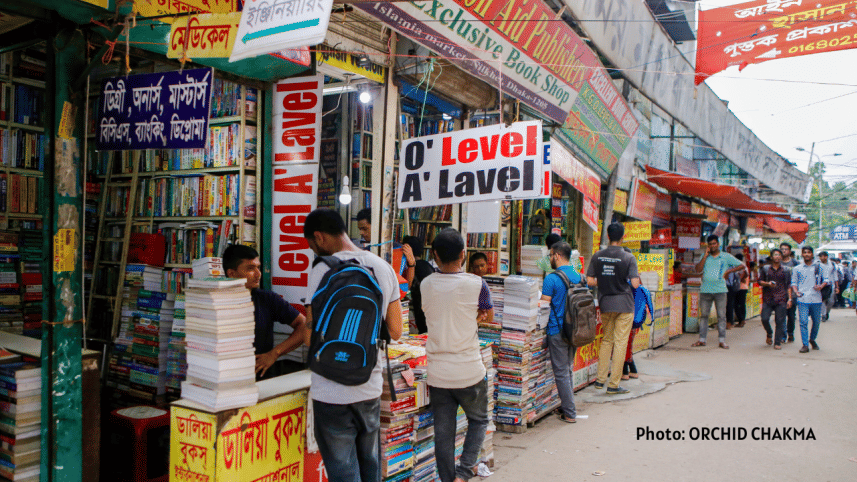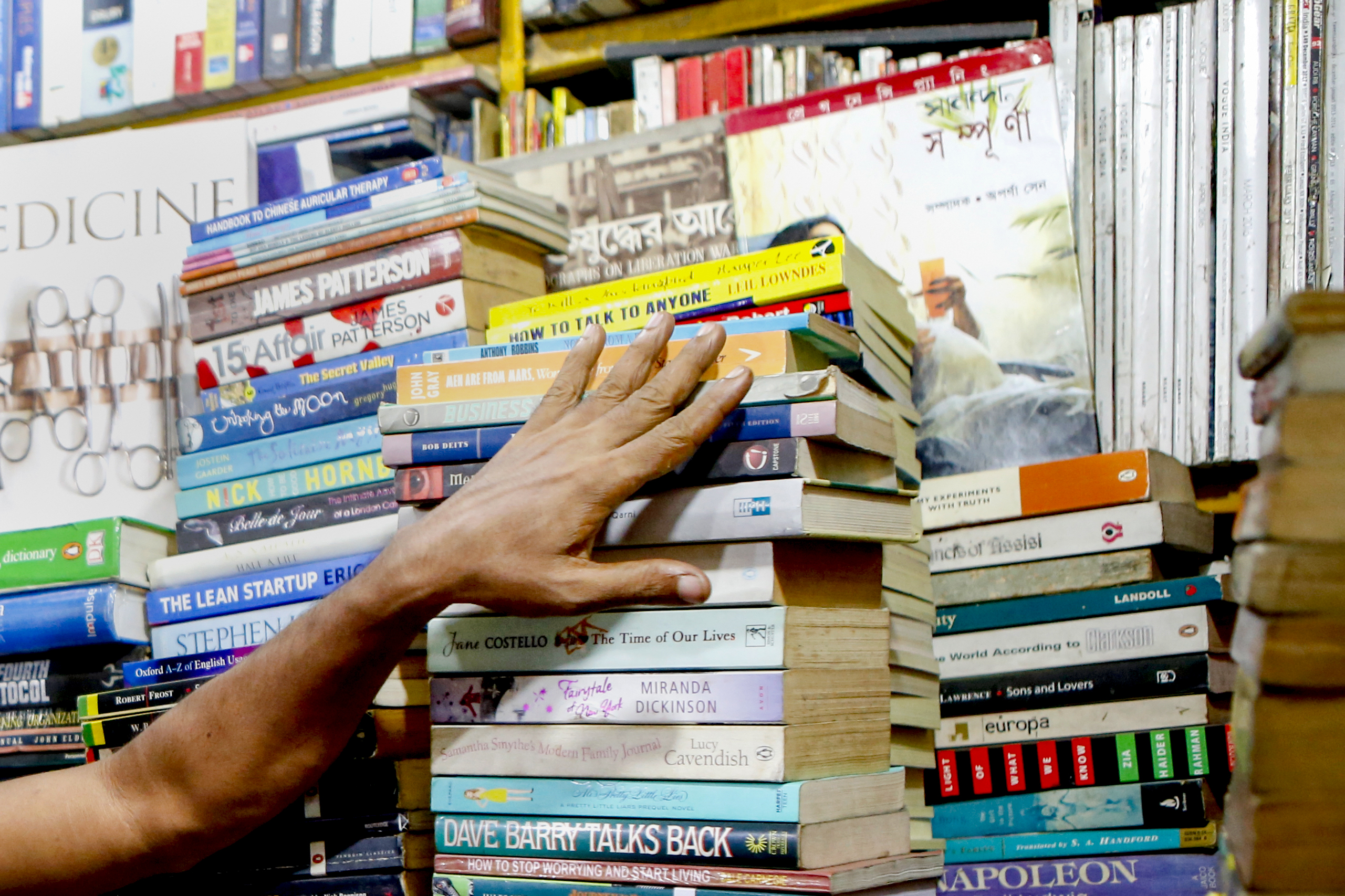The struggles of Nilkhet booksellers in rain and storm

I saw a lot of people on my social media romanticising Monday's rain and storm by posting videos or pictures of themselves. They were enjoying a book or coffee with some form of soothing music playing in the background. I found their insensitivity to be distasteful. It is oftentimes easy for us to dismiss the struggles of people from other socio-economic backgrounds because of one's privilege, but this does not dissolve the human cost of such extreme natural phenomena.
I couldn't stop thinking about the primary victims of Cyclone Sitrang—the people who lived in coastal areas, including the ones who had lost their loved ones or their homes. I was especially concerned about a place within Dhaka city which is sacred, not just to me but to book lovers all across the country—Nilkhet.
Given the nature of the rain, it was particularly difficult for the roadside booksellers in Nilkhet to sell their books on that day. In most such cases, the booksellers have to take the entire day off from selling books as it is practically impossible to keep the books on display and risk damaging them.
"When it rains, we have to cover our books using polyethene. However, it still is a risky process as there might be holes in the polyethene, which means water will leak in and ruin my books", Mohammad Shawon, a roadside bookseller at Nilkhet, tells me on my trip to the bookstore on the day after the storm. "We have to use multiple layers of polyethene to ensure that water does not leak inside", he said.
When asked if he ever had to incur such losses in the past, Mohammad Shawon replied, "It often turns out that 50 percent of the books which are exposed to the rain water are ruined, so I am able to sell some of them at a lower price or at the price of second hand books."
Other booksellers had a much worse fate. Another roadside bookseller named Mohammad Rustom said, "We have to face severe difficulties during weather adversities, such as rain or storms. We have no other option but to keep these books here on the footpath after wrapping them with plastic. If books get damaged in the rain, no one wants to buy them, which means we have to incur severe losses. For example: a few days ago, books worth 4,000 Taka got damaged from my stock and I was unable to sell those books. For someone like me, 4,000 taka is a very substantial amount."
"On top of that," Rustom added, "I am unable to sell any books on the days it rains as I cannot sit here. I am a poor man who has to maintain his family using the meagre amount I earn by selling books, which ranges from BDT 300 taka to 800 taka per day. When I have to incur such unprecedented losses, it becomes increasingly difficult to live sustainably. My family consists of two daughters and one son, and whatever happens, I have to pay the rent for our house at least. Sometimes we have to compromise on meals."
Seeing the struggles of these booksellers made me very melancholic. When one goes to such places and explores the more humane side of booksellers by talking to them about the challenges they face, it makes one much more aware of the faces behind the books we buy, behind the capitalist exchange of our purchases.
During the short period of time I spent talking to the booksellers, I observed multiple customers around me who were bargaining with the booksellers to reduce their prices while being completely oblivious to their sufferings.
When you buy a book from the roadside bookseller of Nilkhet, know and acknowledge the struggles they have to face on a regular basis just to ensure that they are able to sell you books.
Hrishik Roy is an intern at the Daily Star Books. Reach out to him at hrdibbo@gmail.com.




 For all latest news, follow The Daily Star's Google News channel.
For all latest news, follow The Daily Star's Google News channel. 


Comments